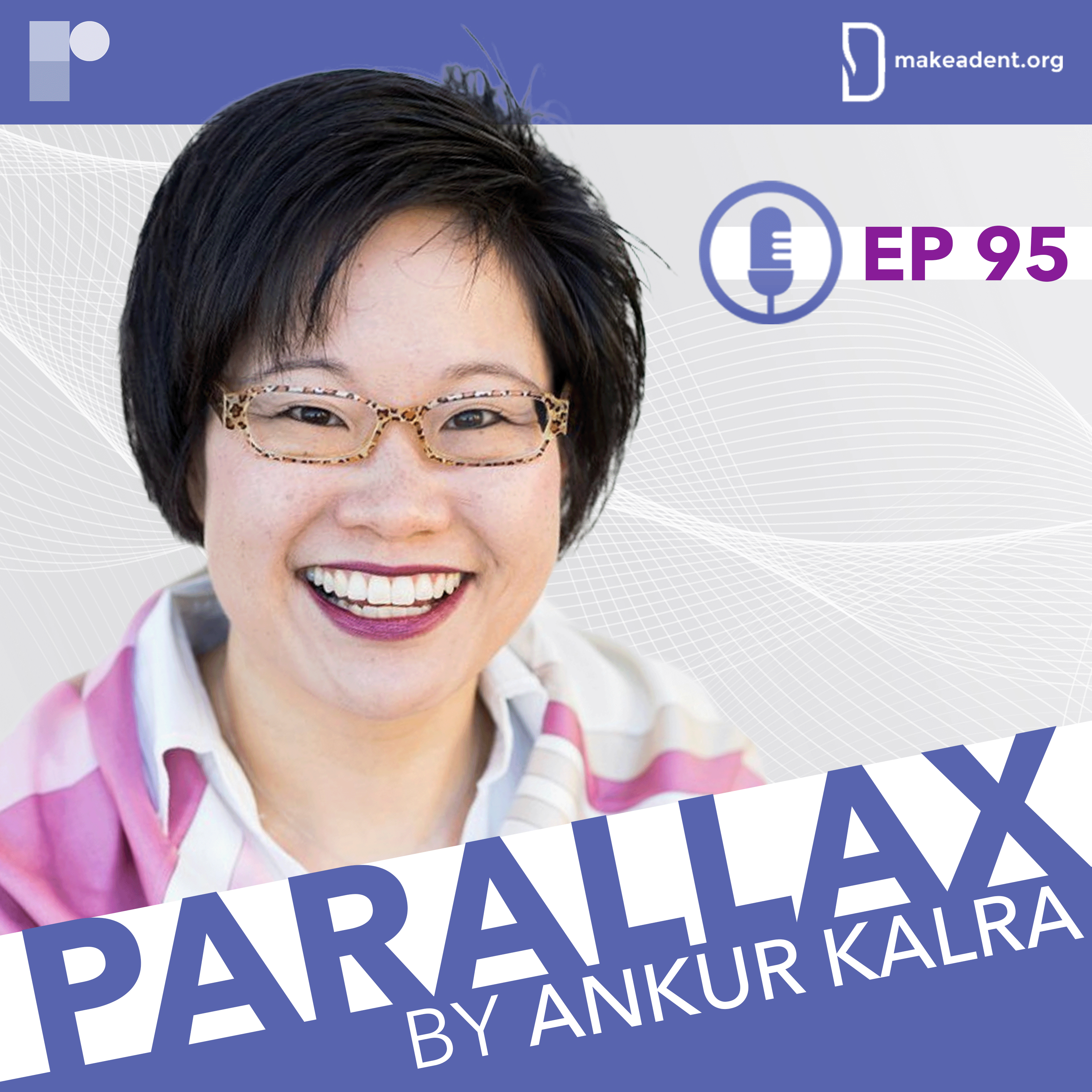
Join Dr Ankur Kalra in this episode of our mini-series, "Conversations about Hypertrophic Cardiomyopathy", as he engages in an in-depth discussion with Dr Carolyn Yung Ho. Together, they explore the journey from symptoms to diagnosis and management options for hypertrophic cardiomyopathy (HCM).
This series is supported by an unrestricted educational grant from Bristol Myers Squibb. Please see www.camzyosrems.com for important safety information.
Dr Ho is Medical Director of the Cardiovascular Genetics Center and an Associate Professor at Harvard Medical School.
Dr Ho offers a comprehensive examination of HCM, providing valuable insights on diagnosing the condition and distinguishing it from other conditions. The discussion addresses important questions, such as when to refer patients suspected of having HCM.
The episode explores the significance of cardiac MRI in diagnosing and distinguishing HCM, with a focus on the distinctive features that aid in assessment. The differentiation between sarcomeric and non-sarcomeric forms of HCM is examined for its clinical relevance, with an emphasis on identifying individuals at risk.
Dr Ho sheds light on the diagnostic tools used for risk stratification in both obstructive and non-obstructive cases of HCM. The conversation delves into management strategies for non-obstructive HCM patients, including additional approaches to alleviate symptoms such as exertional dyspnoea.
The episode concludes by discussing cardiac myosin inhibition as a potential therapy, covering important considerations and providing a comprehensive checklist for initiating treatment. Additionally, the latest evidence on exercise training in HCM patients is highlighted.
Tune in to gain insights into the diagnosis and management of HCM as Dr Ankur Kalra and Dr Carolyn Yung Ho illuminate this intricate cardiovascular condition.
This content is intended for US-based physicians.
This series is supported by an unrestricted educational grant from Bristol Myers Squibb.
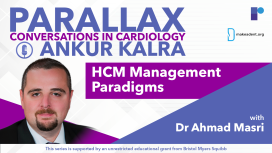
This series is supported by an unrestricted educational grant from Bristol Myers Squibb. Please see www.camzyosrems.com for important safety information.
This content is intended for US-based physicians.

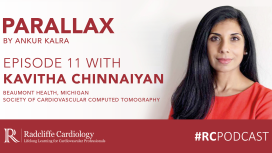
In the final episode of our burnout and resilience series, Kavitha and Ankur give you some practical tools of self-care to help you avoid burnout. Kavitah Chinnaiyan, MD, is an award-winning author and, Cardiologist and Director of Cardiac CT Research at Beaumont Health, MI. Send us your thoughts to this episode for Ankur to share in future episodes: podcast@radciffe-group.com. Guest @ChinnaiyanMD.
Hosted by @AnkurKalraMD. Produced by @RadcliffeCARDIO.
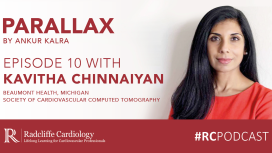
In our second episode on burnout and resilience, Kavitah Chinnaiyan, MD, and Ankur take a deeper dive into mindfulness and training the brain to move from Default-Mode to Task-Positive Networks. Kavitah is an award-winning author and, Cardiologist and Director of Cardiac CT Research at Beaumont Health, MI. Send us your thoughts to this episode for Ankur to share in future episodes: podcast@radciffe-group.com. Guest @ChinnaiyanMD.
Hosted by @AnkurKalraMD. Produced by @RadcliffeCARDIO.
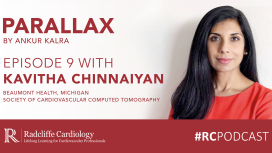
Hosted by @AnkurKalraMD. Produced by @RadcliffeCARDIO.
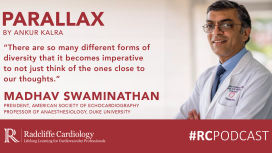
Ankur and Madhav also discuss positive traits of leadership, why we should embrace failure and the importance of mentorship throughout all stages of one’s medical career. Send us your comments to this episode for Ankur to share in future episodes: pocast@radciffe-group.com. Guest @mswami001.
Hosted by @AnkurKalraMD. Produced by @RadcliffeCARDIO.
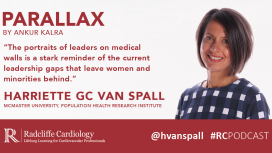
Harriette is an Associate Professor of Medicine at the Department of Medicine, Cardiology and the Department of Health Research Methods, Evidence and Impact at McMaster University and the Population Health Research Institute in Hamilton, ON, Canada. In this episode, Ankur and Harriette discuss why this issue is so contentious, what the current state of medical walls represents, why this may be an issue and what alternative medical walls could look like. Harriette also shares her thoughts on how this topic relates to the maintenance of hierarchical power structures in academic institutions, calling for more collaborative leadership and management styles. Guest @hvanspall.
Hosted by @AnkurKalraMD. Produced by @RadcliffeCARDIO.





